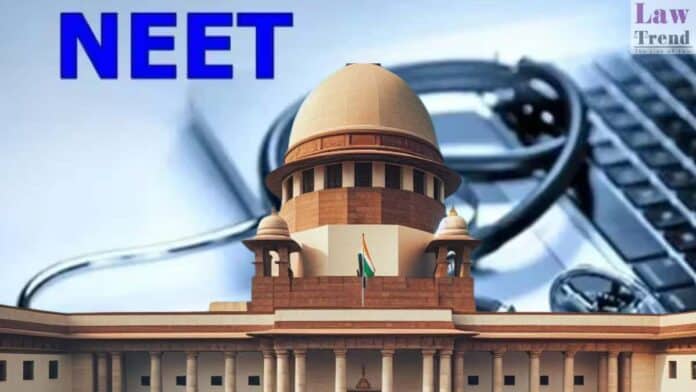In a critical development today, the Supreme Court sternly reprimanded the National Testing Agency (NTA) over its management of the National Eligibility-cum-Entrance Test (NEET), emphasizing that even minimal negligence in conducting the medical entrance examination is unacceptable.
During the hearing of several petitions alleging irregularities in NEET, which is crucial for students aspiring to enter medical colleges, the court highlighted the need for immediate and decisive actions by the NTA. “If there’s even 0.001% negligence on anyone’s part, it should be thoroughly dealt with,” stated the bench, comprising Justice Vikram Nath and Justice SVN Bhatti.
The justices pressed the NTA for transparency and fairness in their process. “As an agency conducting the examination, you must act fair. If there is a mistake, acknowledge it openly and outline the corrective steps. This is crucial to maintain trust in the examination process,” they advised.
Highlighting the significant effort students invest in preparing for NEET, regarded as one of India’s most challenging entrance exams, the Supreme Court also pointed out the broader implications of any misconduct. “Imagine the consequences if someone who has committed fraud becomes a doctor. Such an individual could be extremely harmful to society. Children work tirelessly to succeed in NEET,” the court added.
In response to earlier incidents, the NTA last week informed the Supreme Court about their decision to invalidate grace marks awarded to 1,563 candidates, offering them an opportunity to retake the exam on June 23. The results of this re-test are scheduled to be announced by June 30. Those opting out of the re-test will retain their initial scores, minus the grace marks.
Also Read
The results of the NEET exam, initially held on May 5 and attended by nearly 24 lakh students, were released on June 4. However, the revelation of a perfect score by 67 candidates and subsequent allegations of a paper leak and other administrative mishaps have fueled widespread student protests. Issues cited include incorrect distribution of question papers, mishandling of Optical Mark Recognition (OMR) sheets, and delays in sheet distribution, raising questions about the examination’s integrity.
The next court hearing on this matter is scheduled for July 8, where further developments are anticipated.




